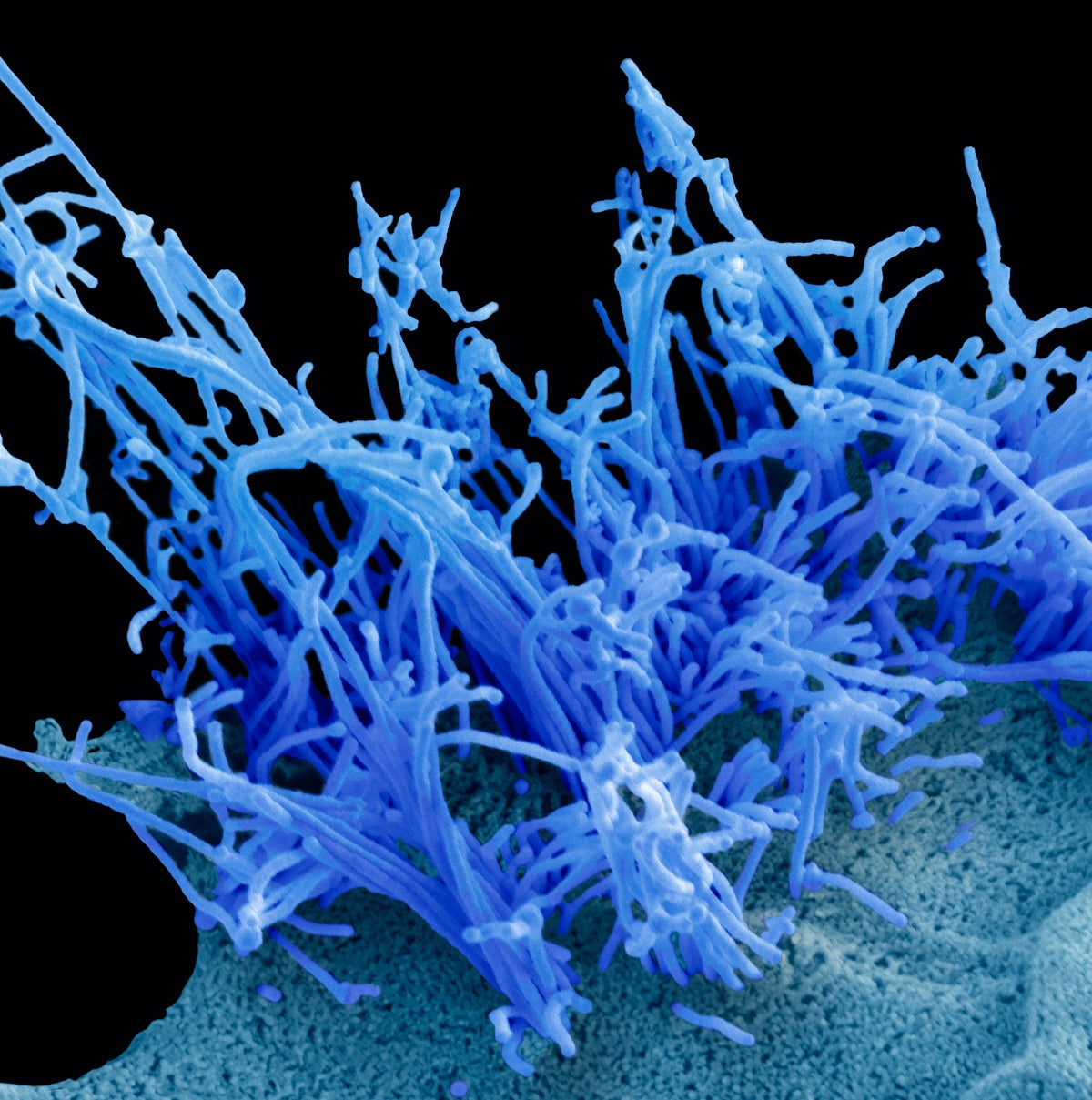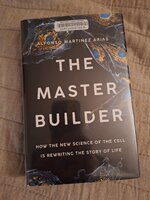You are using an out of date browser. It may not display this or other websites correctly.
You should upgrade or use an alternative browser.
You should upgrade or use an alternative browser.
The N&G Science Discussion Thread
- Thread starter jaycee
- Start date
Scientists Cracked Open A Rock—and Found 2-Billion-Year-Old Microbes Inside — Popular Mechanics
These tiny organisms break the microbe age record by 1,900,000,000 years.
LeSamourai
Well-Known Member
I just finished listening to this book (Hope for Cynics: The Surprising Science of Human Goodness by Jamil Zaki). Basically, it's an argument against cynicism (the modern version, not the ancient Greek one) by showing how cooperation and skeptical hope lead to much better outcomes and a more accurate view of other people, all backed up by studies and data (complete with an appendix rating the quality of the evidence for each claim). I particularly liked how he argues that the antidote to cynicism is not hope, but healthy skepticism and an openness to ideas, data, and trust.

 www.pbs.org
www.pbs.org

In 'Hope for Cynics,' researcher explores how seeing the good in others is good for you
At Stanford Social Neuroscience Laboratory, scientists have spent years studying kindness, connection and empathy. But those can all seem in short supply at a time of deep divisions. But the head of that lab offers a data-driven reason to be hopeful about each other and the future. Amna Nawaz...
Last edited:
Jan
Well-Known Member
Thanks, added to my library wish listI just finished listening to this book (Hope for Cynics: The Surprising Science of Human Goodness by Jamil Zaki). Basically, it's an argument against cynicism (the modern version, not the ancient Greek one) by showing how cooperation and skeptical hope lead to much better outcomes and a more accurate view of other people, all backed up by studies and data (complete with an appendix rating the quality of the evidence for each claim). I particularly liked how he argues that the antidote to cynicism is not hope, but healthy skepticism and an openness to ideas, data, and trust.

In 'Hope for Cynics,' researcher explores how seeing the good in others is good for you
At Stanford Social Neuroscience Laboratory, scientists have spent years studying kindness, connection and empathy. But those can all seem in short supply at a time of deep divisions. But the head of that lab offers a data-driven reason to be hopeful about each other and the future. Amna Nawaz...www.pbs.org
LeSamourai
Well-Known Member
TenderLovingKiller®
Well-Known Member
Spoiler alert: the mitochondria did it.
/https%3A%2F%2Ftf-cmsv2-smithsonianmag-media.s3.amazonaws.com%2Ffiler_public%2F9d%2Fd8%2F9dd8d886-10ab-41ed-ba97-36bdc8216c25%2Fgettyimages-478186903.jpg)
Amateur Mathematician Discovers the Largest Known Prime Number, With More Than 41 Million Digits
Called M136279841, the value belongs to a rare class of prime numbers called Mersenne primes and was found using a supercomputer system spread across 17 countries
Called M136279841, the value belongs to a rare class of prime numbers called Mersenne primes and was found using a supercomputer system spread across 17 countries
Now, Luke Durant, a 36-year-old researcher and former employee of tech giant NVIDIA, has discovered the 52nd Mersenne prime, which also happens to be the largest prime number known to mathematicians: 2^136,279,841 minus one. This goliath number, dubbed M136279841, has 41,024,320 decimal digits. The feat, which beats out the previous record by 16 million digits, was announced in a statement by the Great Internet Mersenne Prime Search (GIMPS) on Monday.
Quantum 'Schrödinger's cat' survives for a stunning 23 minutes — New Scientist
A typically fragile quantum superposition has been made to last exceptionally long, and could eventually be used as a probe for discovering new physics
Jan
Well-Known Member

Two teenagers have once again proved an ancient math rule
Ne’Kiya Jackson and Calcea Johnson have published 10 trigonometric proofs of the Pythagorean theorem, a feat thought impossible for 2,000 years.
More Than One in Three Tree Species Around the Globe Are at Risk of Disappearing, New Report Finds — Smithsonian Magazine
An assessment from the International Union for Conservation of Nature paints a grim picture of the extinction risk of the world's trees
We've seen particles that are massless only when moving one direction — New Scientist
Inside a hunk of a material called a semimetal, scientists have uncovered signatures of bizarre particles that sometimes move like they have no mass, but at other times move just like a very massive particle
Jan
Well-Known Member

‘The first thing I did was poke it’: Canada beach blobs mystery solved by chemists
Newfoundland Memorial Univeristy team find white masses are likely material used to clean pipes in oil industry
The dark energy pushing our universe apart may not be what it seems, scientists say
Distant, ancient galaxies are giving scientists more hints that a mysterious force called dark energy may not be what they thought.

Prenatal test accidentally picks up cancer in 50% of those with wonky results
The prenatal test results flagged cancers when other screens and tests missed them.
 arstechnica.com
arstechnica.com
Djxfactor511
Well-Known Member
I read somewhere that we are due or overdue for a reversal of planetary polarity, so I wonder if this is that process starting up.
Possibly, but only if this is a sign of it weakening verses just the wobble over time.I read somewhere that we are due or overdue for a reversal of planetary polarity, so I wonder if this is that process starting up.
A sign that we are about to flip will include drastic weakening and multiple poles before it flips.
We do have an anomaly in the southern hemisphere already that is likely a bigger indicator that we are approaching a flip than the wobble of magnetic north.
The "anomaly" in the Southern Hemisphere magnetic field refers to the "South Atlantic Anomaly" (SAA), a region where the Earth's magnetic field is significantly weaker than normal, primarily located over South America and the southern Atlantic Ocean, allowing charged particles from the sun to dip closer to the Earth's surface than usual; this anomaly is growing and moving westward, raising concerns for satellite operations in the area.
Jan
Well-Known Member

Bird Flu Virus Is One Mutation Away from Binding More Efficiently to Human Cells
A new study finds tweaking part of the H5N1 virus infecting dairy cows in a single spot could allow it to better attach to human cell receptors, raising concerns it could transmit more easily between people
November went down as being the second hottest November on record. This means that unless December goes down as one of the coldest Decembers on record, 2024 will go down as the hottest year on record continuing the trend of each year getting hotter.

Google unveils 'mind-boggling' quantum computing chip
It solves in five minutes a problem computers now would need 10,000,000,000,000,000,000,000,000 years to work out, Google says.

Meet Willow, our state-of-the-art quantum chip
Our new quantum chip demonstrates error correction and performance that paves the way to a useful, large-scale quantum computer.
